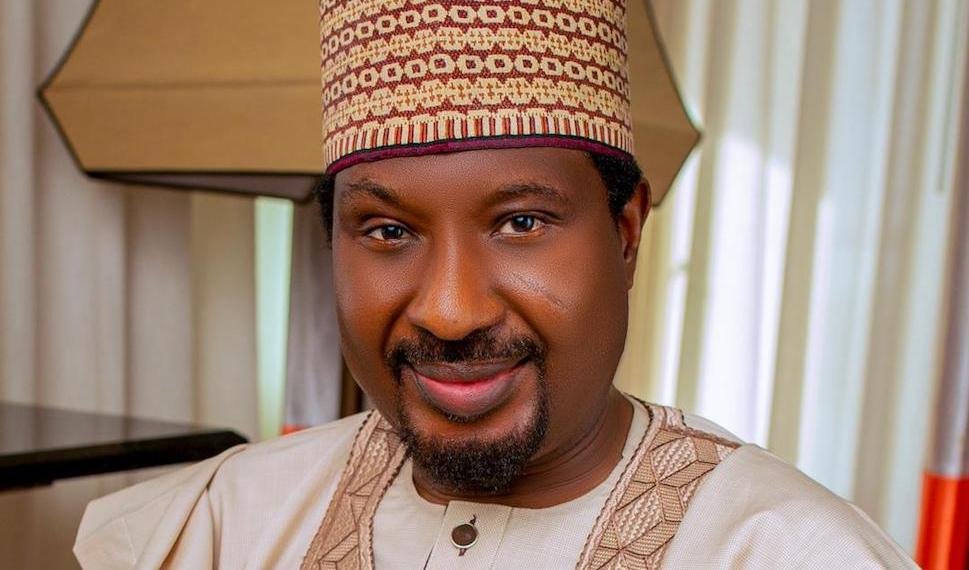A New Dawn For Benue As Governor, SGF Reconcile
By Bridget Tikyaa

In what many observers have described as a turning point in the political history of Benue State, the long-standing rift between the Secretary to the Government of the Federation (SGF), Senator George Akume, and the Governor of Benue State, Rev Fr Dr. Hyacinth Alia, has finally come to an end.
The reconciliation, which took place after months of public and behind-the-scenes engagements, marks a strategic realignment with potentially far-reaching consequences for the political stability and security of the state. It signifies a united front for the ruling All Progressives Congress (APC) in Benue and an opportunity to refocus leadership priorities.
The feud between the two leaders had become a source of concern not only to the people of Benue but also to the national leadership of the APC. As former governor and a political heavyweight in the North-Central region, Senator Akume holds substantial influence, while Gov Alia, as the sitting governor, commands executive authority and popular legitimacy. Their rivalry created a vacuum in leadership cohesion, which weakened the ability of the party and the government to speak with one voice on critical matters, especially security, governance, and development.
One of the most pressing challenges facing Benue State is the incessant killings and displacement of citizens by armed Fulani herdsmen. The charred remains of about two hundred men, women and children at Yelwata is the most sickening reminder to Nigerians about the threat Benue has been facing.
These attacks have left thousands dead and many more displaced across communities in Makurdi,Guma, Gwer West, Logo, Ukum, Agatu, and other parts of the state. The conflict has defied various local and federal interventions, largely due to fragmented political will, poor coordination, and mutual suspicion among stakeholders. The Akume-Alia reconciliation comes as a timely development with the potential to consolidate efforts in addressing the menace head-on.
With both leaders now aligned, Benue stands to benefit from a more coordinated and strategic engagement with the Federal Government. Senator Akume, as SGF, sits at the heart of national policymaking and has the ears of the President. Gov Alia, on his part, can now leverage that proximity to push for urgent federal intervention in terms of military deployments, humanitarian support, and the establishment of resettlement and rehabilitation initiatives for displaced persons. Unity between the two opens doors for pragmatic dialogue and policy synergy that can address the root causes of insecurity.
The reconciliation also provides a solid platform for regional diplomacy and peacebuilding. With a cohesive leadership, Benue can now initiate and implement meaningful measures with neighbouring states and through platforms such as the North Central Governors’ Forum and the National Council of Traditional Rulers. Such conversations, backed by a united political will, can put an end to the violent, genocidal, land-grabbing systematic attacks on Benue State territorial boundary.
Furthermore, the healing of political wounds within the APC in Benue could lead to greater focus on development and service delivery. The past months have witnessed distractions, infighting, and bureaucratic sabotage that slowed down the implementation of key state projects. A harmonious working relationship between Akume and Alia is likely to stabilize the bureaucracy, attract more federal funding, and reignite confidence among investors, development partners, and local communities who yearn for good governance.
It is also important to highlight the symbolic significance of this reconciliation for the people of Benue. In a state often burdened by ethnic divisions, partisan hostilities, and historical grievances, the willingness of two political gladiators to bury the hatchet sets an example in leadership maturity. It sends a strong message that the interests of the people must come before ego, and that peace and development are achievable when leaders place public good over personal ambition.
As Benue steps into this new chapter, the hope of millions of its citizens now rests on the sincerity and sustained commitment of both Akume and Alia to work together. Their reconciliation must go beyond political optics and translate into joint actions that bring peace to troubled communities, restore livelihoods, and reposition the state on the path of unity and prosperity. For a state that has bled for too long, this moment could well be the beginning of its healing.
Another significant outcome of this reconciliation could be the reinvigoration of grassroots political structures across the state. With the SGF and the Governor now speaking in unison, local government administrations—many of which have been polarized along factional lines—can now begin to function with a renewed sense of purpose. This is particularly important for effective community policing, intelligence gathering, and rapid response to security threats. When grassroots actors feel aligned with the central leadership, collaboration becomes more organic, and the burden of state-building is shared more evenly across all levels of governance.
Moreover, the rapprochement between Akume and Alia offers an opportunity to rebrand Benue’s image nationally and internationally. For years, the state has been in the news for the wrong reasons—massacres, internally displaced persons (IDPs), and a seemingly endless cycle of violence. A peaceful, politically united Benue under competent leadership can reposition itself as a destination for agriculture, tourism, and investment. This would require deliberate media engagements, policy transparency, and strategic public-private partnerships that present Benue not as a victim of conflict, but as a resilient land of potential and opportunity. The time to rewrite that narrative is now—and it begins with unity at the top.
Bridget Tikyaa is the Principal Special Assistant to Governor Alia on Media, Publicity and Communications Strategy





